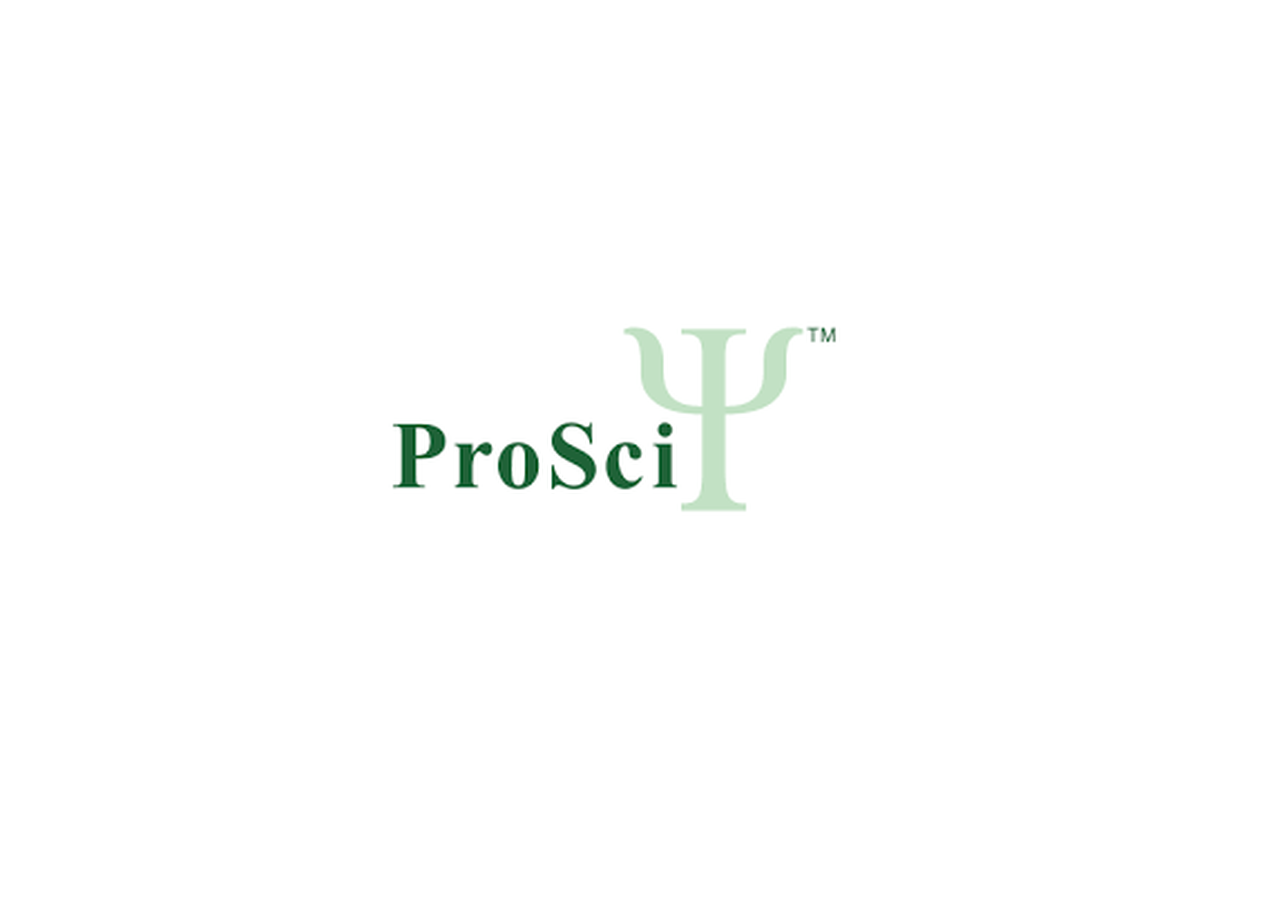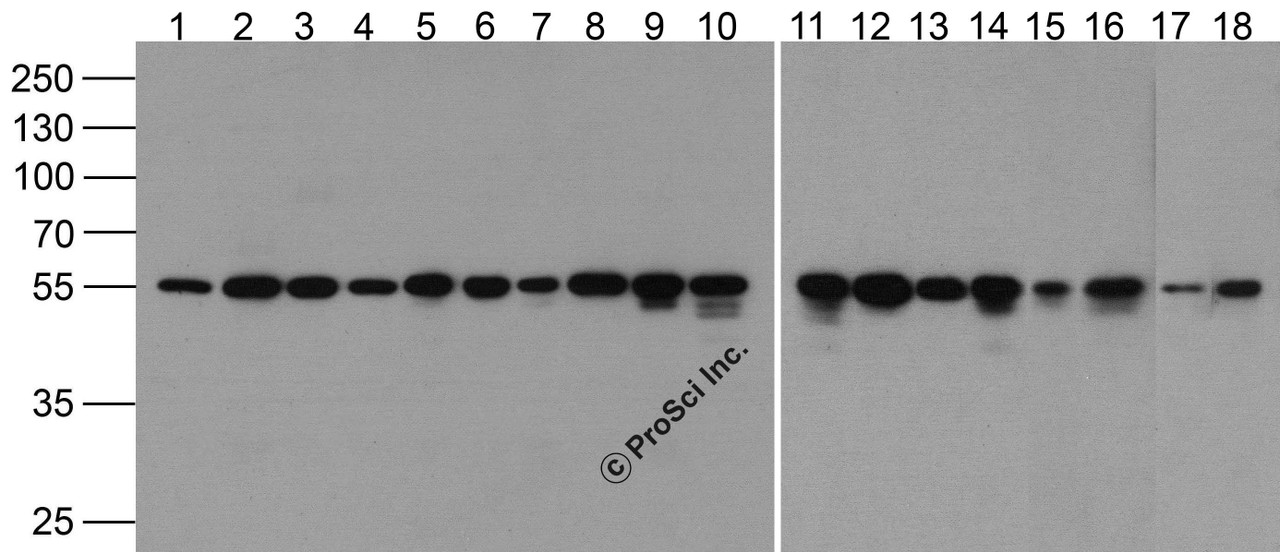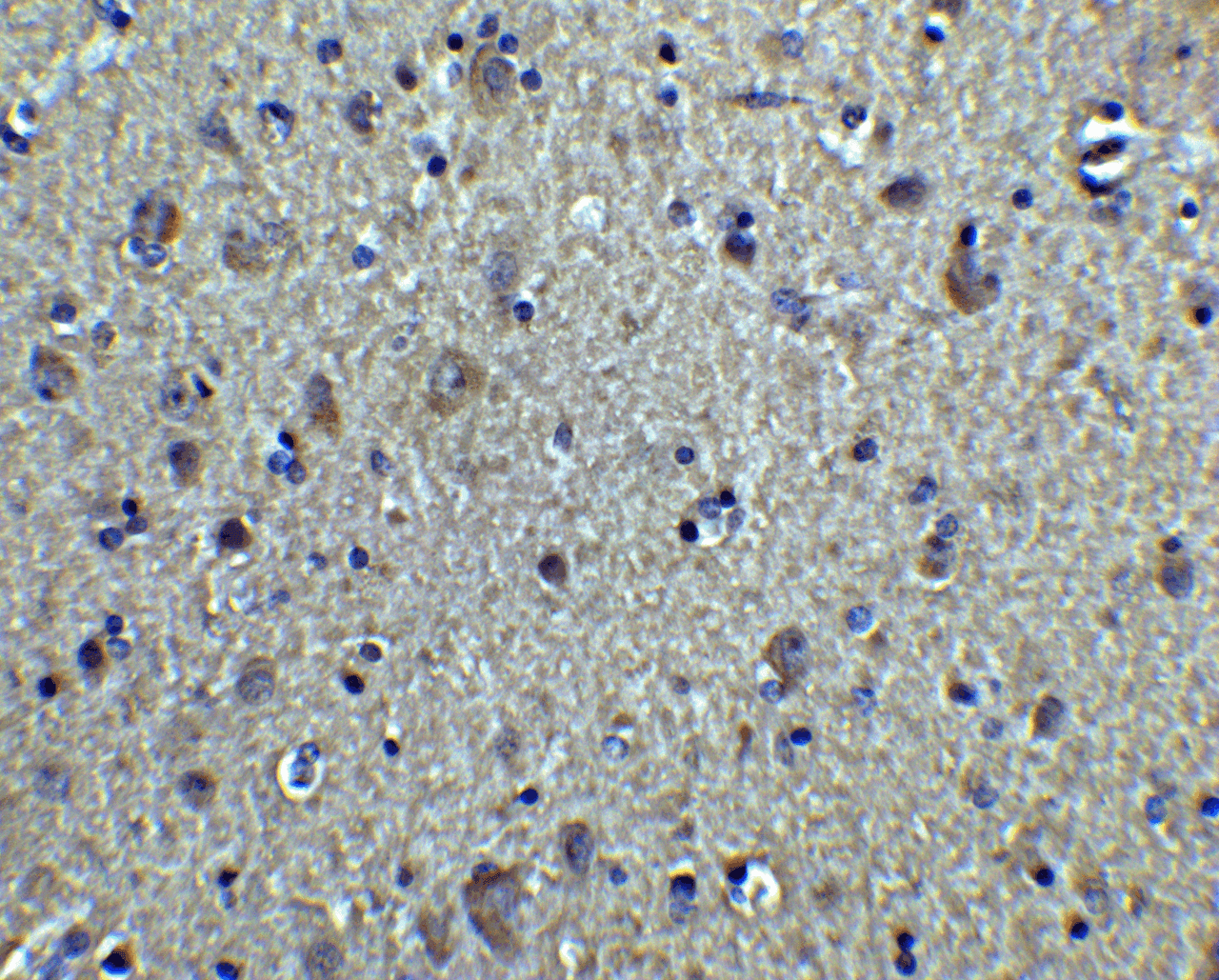Product Description
alpha-Tubulin Antibody | 7597 | ProSci
Host: Rabbit
Reactivity: Human, Mouse, Rat
Homology: N/A
Immunogen: alpha-Tubulin antibody was raised against an 18 amino acid peptide near the carboxy terminus of human alpha-Tubulin
Research Area: Homeostasis
Tested Application: E, WB, IHC-P, IF
Application: alpha-Tubulin antibody can be used for detection of alpha-Tubulin by Western blot at 1 - 2 μg/ml. Antibody can also be used for Immunohistochemistry starting at 2.5 μg/mL. For immunofluorescence start at 20 μg/mL.
Antibody validated: Western Blot in human, mouse, and rat samples; Immunohistochemistry in human samples and Immunofluorescence in human samples. All other applications and species not yet tested.
Specificiy: alpha-Tubulin antibody is human, mouse and rat reactive.
Positive Control 1: Cat. No. 1303 - Human Brain Tissue Lysate
Positive Control 2: N/A
Positive Control 3: N/A
Positive Control 4: N/A
Positive Control 5: N/A
Positive Control 6: N/A
Molecular Weight: Predicted: 50 kDa
Observed: 54 kDa
Validation: N/A
Isoform: N/A
Purification: alpha-Tubulin antibody is affinity chromatography purified via peptide column.
Clonality: Polyclonal
Clone: N/A
Isotype: IgG
Conjugate: Unconjugated
Physical State: Liquid
Buffer: alpha-Tubulin antibody is supplied in PBS containing 0.02% sodium azide.
Concentration: 1 mg/mL
Storage Condition: alpha-Tubulin antibody can be stored at 4˚C for three months and -20˚C, stable for up to one year.
Alternate Name: Tubulin alpha-1A, TUBA1A, TUBA3, LIS3
User Note: Optimal dilutions for each application to be determined by the researcher.
BACKGROUND: alpha-Tubulin belongs to the tubulin superfamily, which is composed of six distinct families. Along with beta-tubulins, alpha-Tubulins are the major components of microtubules. These microtubules are involved in a wide variety of cellular activities ranging from mitosis and transport events to cell movement and the maintenance of cell shape. Alpha- and beta-tubulin dimers are assembled to 13 protofilaments that form a microtubule of 22-nm diameter (reviewed in 1) . Tyrosine ligase adds a C-terminal tyrosine to monomeric alpha-Tubulin. Assembled microtubules can again be detyrosinated by a cytoskeleton-associated carboxypeptidase (2) . Another post-translational modification of detyrosinated alpha-Tubulin is C-terminal polyglutamylation, which is characteristic of microtubules in neuronal cells and the mitotic spindle (3) . Like GAPDH and ?-Actin, this antibody makes an excellent loading control in immunoblots.
 Euro
Euro
 USD
USD
 British Pound
British Pound
 NULL
NULL












